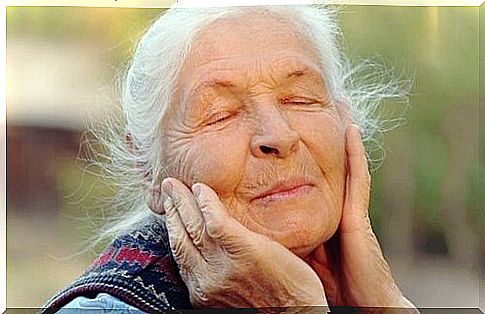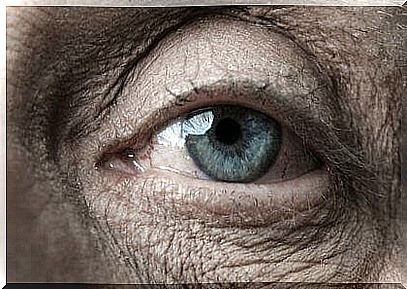Regulating Our Emotions In Old Age: The Key To Well-being

Regulating emotions properly in old age is an exercise in health and wellness. Interestingly, researchers have found information from several studies that extends beyond physical and cognitive decline. Older adults are, on average, much more adapted to positive emotions. They value social relationships and also have greater control over their emotions.
The Swiss philosopher Henri-Frédéric Amiel said that knowing how to grow old is a masterpiece of sanity. He also said that it is one of the most difficult parts to master in life. This is not easy to do. Achieving old age with the same optimism as a young person with their whole life ahead of them is difficult. The key lies in looking at the present with humility, simplicity and optimism.
In old age, we are facing a decline in the body’s abilities along with the progressive decline in our own faculties. Older people, however, are still able to maintain a subjective sense of happiness worthy of admiration. The right emotional regulation in this last phase of life is evident in a good portion of the population. Therefore, this helps to regulate aging.

Regulating our emotions in old age: The latest findings
The way the elderly regulate their emotions is a relatively new field. But now that life expectancy has increased a lot recently, it is clear that this part of our population will be very important to society in the coming years. Therefore , an important challenge that we have before us is to reach old age in the best possible condition. We are not just talking about physical well-being. Above all, we focus on the emotional plane.
This new field of research is maturing and growing. Dr. Derek Isaacowitz, an emotion expert at Yale University, has developed a technique for studying older people’s attention deficit disorder . He created glasses that record the user’s physical reaction. The glasses record this data so that the researchers can analyze it later.
This survey has shown that 90% of older adults are more interested in faces that show positive emotions. That preference, the constant search for a smiling face, a warm look or a kind word, helps them to regulate their own emotions. Experts believe that it is as if the brain acts as a cognitive intermediary by focusing its attention on these stimuli. In turn, this reduces negative emotions and the brain fills itself with positivity.

Emotions do not worsen with the aging process
The first thing that happens with old age is a change in motivations. These long-term goals are limited to investing in a better quality of life today. Therefore, regulating our emotions in old age has a very special purpose. The motivations are defined. It seeks to optimize the emotional experience to enjoy balance, inner peace and relationships with friends and family.
- All of this constitutes what is known as the paradox of well-being in old age. As striking as it may be, old people have higher life satisfaction than young people on average. This is because older people can regulate their emotions better. This mechanism does not produce a degradation that is as common or parallel to the declining cognitive processes of the elderly.
- For example, we know that aging mainly affects the frontal lobes of the brain. This area of the brain contains our capacity for attention, problem-solving abilities and the ability to plan. However , our emotions and our ability to interact with our surroundings through looks, smiles and positive reactions are something that remains intact. This property is resistant to diseases as severe and as sad as Alzheimer’s disease.

Old age makes us more selective
In many cases, when we are young, we filter our reality. In our youth we let everything come our way. We love to experiment with different things and people. We also accept everything with open arms and a willing heart. But as we mature, we begin to use filters in our lives. When we cross the threshold that leads us into the last phase of life, we receive a new vision. We release these filters and become even more selective. We want to prioritize and focus our attention only on things that can give us well-being and happiness instead of problems.
Psychologist and researcher Heiner Ellgring from the Max Planck Institute in Munich, explained this phenomenon in his book The Reasons and Emotions of Old Age. According to him, the elderly focus on three aspects of life:
- To enjoy relationships with family and friends.
- To invest in their health.
- To take care of and enjoy different things (home, garden, animals, etc.)
A positive life for an elderly person is a life where they can focus on these aspects. The subjective happiness lies in these factors. The social, relational and affective aspect is the most important. Therefore, getting older in a positive way lies in being selective and having clear priorities. For the elderly, enjoying positive emotions daily is the biggest priority.








